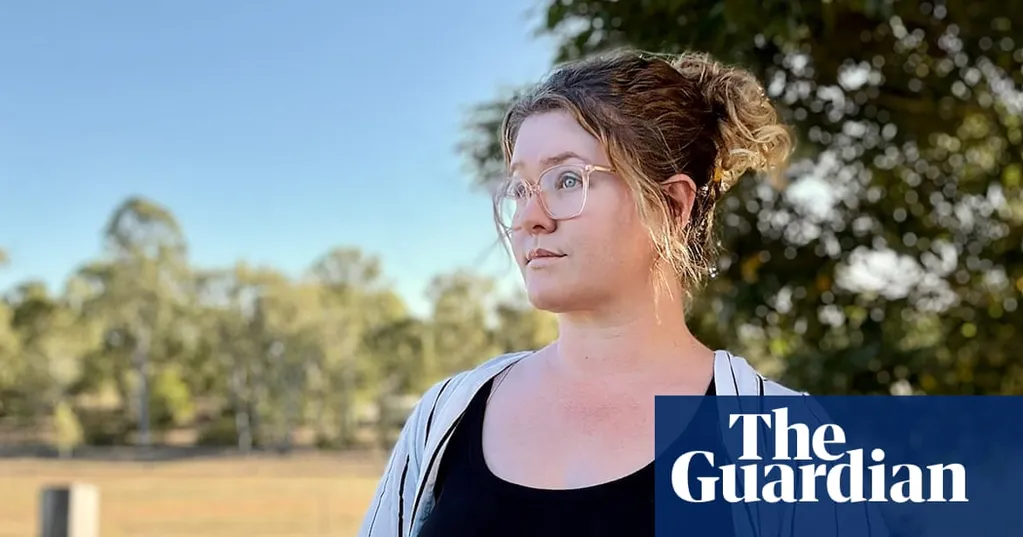Queensland woman Jessica Hamilton has 77 half-brothers and sisters. But this week she learned that number could grow even further - swelled by new births.
In 1995, the year she was born, Queensland Fertility Group told Hamilton's mother that she could expect to have between three and five siblings to other families.
The clinic still stocks some of her donor's sperm - material for new births that has been stored for more than 30 years.
Years later, Hamilton did a DNA test out of curiosity, expecting to find "maybe one" long-lost brother or sister. She found 13 and broke down in tears. The number has since grown, as new people discover their secret through online DNA testing.
The clinic, which is now owned by Virtus Health, the biggest IVF and sperm donor company in the country, told her half-sister, Lyndal Bubke, this week that it still stores nine additional samples of her donor's materials in its stockpile. Bubke believes they are being held to be used.
Hamilton said she is terrified of her biological father's sperm being used to inseminate one of her unknown half-siblings, by accident.
Australia's health ministers will meet on Friday in Perth to debate the future of Australia's fertility clinics after a three-month "rapid review" of the sector's regulation in Queensland. It comes after a series of scandals, including two embryo mix-ups at Monash IVF. One saw a woman in Brisbane give birth to a stranger's baby, in the other, a woman's own embryo was incorrectly implanted.
It is expected several ministers will push for reform, with both a national framework as well as a national donor register on the agenda.
"I think I can give you a very clear signal that we're unhappy with the self-regulatory regime that's been run by the providers themselves under their own auspices, and also the standards they've set for themselves," the Queensland health minister, Tim Nicholls, told media on Thursday.
The federal health minister, Mark Butler, himself a father of a "beautiful IVF baby" said the issue will be "a matter of priority" at the meeting.
The commonwealth-level regulator, the Reproductive Technology Accreditation Committee (RTAC), is an organisation of the fertility society, the industry body.
In 2004 the industry said it had put an end to the practice of creating huge pods, voluntarily capping the number of total families to be created at 10. There is no federal law or regulator requiring them to maintain this limit.
In 2022, Queensland Fertility Group's then medical director, Anusch Yazdani, told a parliamentary inquiry that it had let donor-conceived people down.
But Bubke said the nine samples - which are being kept in storage against the recommendations of the state health ombudsman - show that the industry will repeat the same mistakes in future unless made to stop.
"This industry cannot regulate itself. The only thing that will stop this from happening is robust, independent government regulation at both federal and state levels," Bubke said.
A spokesperson for the Fertility Society of Australia and New Zealand said it had called for an independent regulatory body "for many years".
"The rapid review has now allowed for the recommendations of this roadmap to be considered, and we are pleased issues such as an independent regulatory body are now under consideration," the spokesperson said.
A spokesperson for Queensland Fertility Group said it "expresses empathy for Ms Bubke. We acknowledge her experience and take her concerns seriously."
Hamilton says it's time for QFG to destroy all its old samples. The health ombudsman last year recommended it do so for material at too high a risk of misidentification: 99.8% of sperm frozen by QFG before 2020 failed to meet this benchmark due to a lack of double-witnessing, according to a later audit.
The clinic rejects claims that sperm frozen before 2020 is of high risk, the spokesperson said. It said single witnessing "was the standard process at the time".
Hamilton said she is concerned there may be more mislabelled samples from "Donor 59" somewhere in QFG's stockpile which could be accidentally used.
The mother of four is particularly worried about the next generation, the potentially hundreds of children that will be born to her 77 siblings. With so many, the risks of accidental incest get larger and larger, she says.
"I have many friends who have gone through IVF with Queensland Fertility Group in Brisbane. I'm lucky that my parents told me that I was donor conceived, and I thankfully never had to go down a fertility route," she said.
"But there's nothing stopping any of those women that don't know going into the clinic and having a relative’s sperm implanted in their bodies."
QFG says the last nine samples remaining from Donor 59 would only be available for parents who want to extend their families - that is, giving a mother who already had one child through the clinic a second related one.
"If a family wishes to use embryos previously created using single witnessed sperm, they are permitted to do so and are provided with counselling," the spokesperson said.
Hamilton believes the true motivating factor for keeping Donor 59’s sperm decades after it was received is much simpler: profit.
